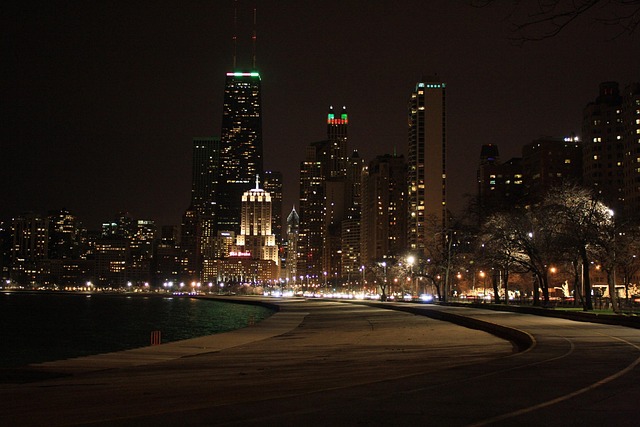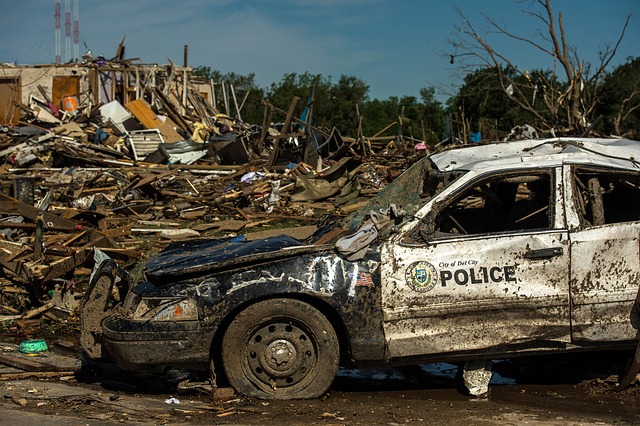Selling a house with fire damage in Chicago presents a unique challenge due to the city's diverse market. Investors are drawn to as-is transactions, while buyers seek quick options. Understanding this dynamic involves legal disclosures, insurance implications, and strategic marketing. By highlighting renovation potential, targeting specific buyer groups, and addressing defects openly, sellers can navigate the competitive Chicago market successfully, transforming challenges into opportunities. Keyword focus: selling house with fire damage Chicago.
“In the competitive Chicago real estate market, understanding as-is home sales is crucial. This article delves into the unique challenges and opportunities presented by selling homes with fire damage in Chicago. We explore key factors such as legal considerations, insurance implications, and marketing strategies to attract buyers. Additionally, we present successful case studies that highlight how proactive approaches can overcome obstacles, ensuring a smoother process for both sellers and prospective purchasers navigating this dynamic market, particularly when dealing with fire-damaged properties.”
- Understanding As-Is Home Sales: A Chicago Perspective
- The Impact of Fire Damage on Property Value in Chicago
- Legal and Insurance Considerations for Selling a Damaged Property
- Marketing Strategies for Attracting Buyers Amidst Competition
- Successful Case Studies: Overcoming Challenges in Chicago Real Estate
Understanding As-Is Home Sales: A Chicago Perspective

As-is home sales in Chicago refer to transactions where properties are sold in their current condition, often including issues like fire damage. This type of sale is particularly common among investors looking to renovate and flip homes or buyers seeking cost-effective options. In a city like Chicago, known for its diverse neighborhoods and unique architectural styles, as-is sales can present both opportunities and challenges.
For example, a home with fire damage in Chicago might appeal to an investor who specializes in restoration projects. They see potential in the property’s location or historic charm, willing to invest time and resources into repairing the damage. Conversely, buyers looking for a quick move-in option without the hassle of renovation may pass on as-is properties. Understanding this dynamic is crucial for both selling a home with fire damage in Chicago and navigating the competitive real estate market in the city.
The Impact of Fire Damage on Property Value in Chicago

In Chicago, as with any city, property value is a critical factor in the real estate market, heavily influencing home sales. One unique challenge that can significantly impact this is fire damage. When a home suffers from fire harm, it doesn’t just affect the physical structure; it also casts a shadow over its monetary worth. The extent of the damage plays a pivotal role in determining the property’s new value, with severe cases potentially leading to substantial reductions.
Selling a house with fire damage in Chicago requires careful consideration. Homeowners face the daunting task of not only repairing the structural integrity but also mitigating any aesthetic or functional losses. The process involves assessing every damaged area, from charred walls and singed carpets to potential structural weaknesses. Professional restoration services can help restore the property to its pre-fire condition, which is essential for attracting buyers and achieving a fair sale price. This may include rebuilding, remodeling, and replacing items like roofing, flooring, and fixtures, ultimately enhancing the home’s appeal and marketability.
Legal and Insurance Considerations for Selling a Damaged Property

Selling a damaged property, such as a home with fire damage in Chicago, comes with unique legal and insurance considerations. In Illinois, sellers are typically required to disclose any known defects or damage to potential buyers. This includes providing detailed information about the extent of the fire damage, any ongoing repairs, and the steps taken to mitigate future risks. Failure to do so may result in legal liability if a buyer suffers an injury or incurs financial losses due to unforeseen issues related to the property’s condition.
Insurance plays a crucial role in protecting both the seller and buyer during this process. Homeowners insurance policies usually cover direct damage from fires, but they may exclude certain expenses associated with selling a damaged property. Sellers should review their policies carefully and consider additional coverage for legal fees, loss of value, or potential claims from buyers who discover undisclosed issues after purchasing the home. Understanding these considerations is essential to ensure a smooth sale and protect all parties involved in the transaction.
Marketing Strategies for Attracting Buyers Amidst Competition

In the competitive Chicago real estate market, particularly when dealing with homes that have experienced fire damage, marketing becomes a crucial tool to attract buyers. Sellers must showcase the potential and beauty that lies beyond the initial impression of a damaged property. A strategic marketing approach is essential to stand out amidst the competition and generate interest.
Highlighting the unique features and opportunities offered by these as-is homes is key. Professional photography and video tours can effectively capture the before-and-after transformation, showcasing the possibilities for renovation. Social media platforms and targeted online ads are powerful tools to reach a wide audience, especially younger buyers who appreciate modern remodeling. Emphasizing the potential for customization and future equity growth can entice purchasers who embrace the challenge of restoring a home to its full glory, turning a selling point into a compelling advantage in Chicago’s dynamic market.
Successful Case Studies: Overcoming Challenges in Chicago Real Estate

In the competitive Chicago real estate market, navigating challenges can be crucial for a successful as-is home sale. Consider the story of a property owner who faced the daunting task of selling their home with significant fire damage. Through strategic planning and expert guidance, they transformed this obstacle into an opportunity. Restoring the house involved careful reconstruction, focusing on both structural integrity and aesthetic appeal, ensuring it met Chicago’s stringent building codes.
This case study highlights the power of resilience and adaptation in the real estate sector. By addressing fire damage openly and transparently, the homeowners attracted buyers who appreciated honesty and the potential for a fresh start. The process involved extensive communication with local contractors, inspectors, and real estate agents who specialized in as-is sales. This collaboration resulted in a revitalized home, showcasing that even properties with historical challenges can find new life and value in Chicago’s dynamic market.
Selling a house with fire damage in Chicago can be challenging, but understanding the local market dynamics and utilizing specific strategies can lead to successful transactions. By navigating legal considerations, effectively marketing properties, and learning from case studies, real estate professionals can help buyers navigate the process and transform damaged homes into vibrant assets within the Chicago landscape. Remember that, in this competitive market, being well-informed and adaptable is key to achieving favorable outcomes for both sellers and buyers alike when selling houses with fire damage.






